“Fado needs silence. And silence needs Fado,” the announcer, who was soon to be our singer, declared to the room. Okay, we were buying it, for now. He then closed his eyes, summoned his inner demons, and belted out an unaccompanied tune about how much life hurts. Listening to Fado music, a traditional Portuguese style, can be done in various places around Lisbon, but no place has it like the old, maze-like neighborhood of Alfama. You should go there at least one evening.
A single visit to Portugal put that country firmly in my European favorites. It has everything you like about Mediterranean countries, though it’s not on the Mediterranean. A diet of wine, cheese, bread, and seafood. Plenty of sun and coastline. Good-looking, friendly, relaxed people. Low prices.
Portugal also has a melancholy attitude, born of its status as a former empire with an economy not nearly as good as the rest of Europe. It also has a long maritime history, and seafaring countries know heartbreak, born of many generations watching their sailors go out to sea, wondering how many years will pass before they return, if they ever do.
Perhaps because I grew up in Upstate New York, USA, I have an affinity for cities that used to be great but are struggling a bit now. In places like Buffalo and Syracuse, cities that were important 100 years ago, you can still see wonderful architecture and grand plans, while you can buy a house there for nothing. I like Liverpool, England, for instance. In all these places, you still feel like you’re Somewhere when you are there. Lisbon puts me in that mindset as well.
Lisbon suffered from the decline of its empire after what they call the Age of Discovery, and eventually lost all its overseas possessions in places like South America and Africa, even Macau. The city suffered a monstrously devastating earthquake in 1755, one of the worst in history, between 8.5 and 9.0 on the Richter scale. It mostly destroyed the city, and changed their history. Finally, Portugal had to live through a corporatist authoritarian regime (basically, fascist) known as Estado Novo in the mid-20th century. Nowadays, tourism is up but the economy is suffering. The average salary in Portugal is just below that of Greece.

One way to find Fado is to just wander the Alfama looking for signs advertising it
Okay, fine, Portugal has suffered and has come down a bit. What to do about it? Sing, of course.
Music genres are hard to track, but there is a style in Portugal called Fado that can be traced back to about the 1820s, with its roots surely deeper. It could be described as folk music, following a traditional structure. In theory, the subject of the song could be anything, but in practice the common theme is mournfulness. It’s like singing the blues.
Fado means “fate”, in a “well, that’s life. It sucks” type of way. So let’s sing about the sailors going out to sea and never coming back. Let’s sing about heartbreak and transgressions and lost passions and the way life should have been good and it was a while ago but changed.
Fado has always been dominated by female singers, because women have always had it tougher than men. Most singers wear black and are serious. Rehearsal and practice is decently important but the live performance, especially improvising, is everything. You need an audience. You’ve got to pour your heart out. You have to move people.
Mostly, you have to do it solo. Fado often has instruments, especially a 12-string guitar or two, but it’s all about the singing.
Fado as a genre has modernized, especially in the central city of Coimbra, where there are more male singers. Still, the common thread is to emote passion in the song, and they’re branching out from the heartbreak into other emotions, even some humor.

Typical street/alley in Alfama. See the sign listing Fado?
I was sitting in my favorite bar in Lisbon, called The Corner Pub. They all knew me there. The owner, by then used to me scribbling in my notepad night after night, grabbed a page from me one time and wrote the word “saudade”. “This,” he declared rather firmly, “is the most important word in Portuguese.” His intense mood signified he wanted me to know this word, and its importance.
Saudade refers to a longing melancholy, a long-felt feeling of loss, perhaps of something you never had, perhaps for something that was or was never to be. Wistfulness. Imagine feeling all that, then singing about it slowly. That’s Fado.
Portuguese people have different opinions on Fado. As it’s slow and traditional, it can be seen as hopelessly old-fashioned, even a gimmick. Last century, the music became associated with the fascist government under Salazar. Musically, I didn’t love it, but for me it’s not the music itself, and that’s why I never sought out CDs of it. It’s the performance, and the emotion.
How to listen to Fado
The Lisbon neighborhood called Alfama is the best place, and as a bonus it’s a wonderful place to explore with or without music. The Alfama’s streets survived the 1755 earthquake much better than the rest of the city, much of which is now covered with grid-like street plans. The Alfama still has the twisting alleyways that make urban exploration fun. Plan on wandering and getting lost.
Fado is not hard to find. I’ll list some places of course but you can find music easily, as so many restaurants have Fado signs outside indicating some type of singer will show up. Find a place about 8:00 p.m. or so and settle in for dinner, so that you’ll be mostly done eating when the music starts.
The common place is called an adega típica, where the Fado comes as dinner theatre. You may need reservations, and the food won’t be as cheap or as good as a real restaurant. The other type of place is called a tasca, where it’s less structured, almost open-mic night. They may not have a standard singer there, just people trading off turns. If you see a sign reading “fado vadio”, it’s truly open-mic night. The places may not have anything like a stage; the singers just stand someplace in the room. Since there’s no band, or if there is it’s only one or two people, they don’t need much room.
My first experience was in a place just off the Largo Santa Luzia, where three or four places sit together, chosen because the waiter standing outside was awfully nice to me. At 8:00, I was one of the first people there, but it quickly filled up and the music started around 9:00. It was an international crowd, with lots of French present. My food was overpriced and not great.
A bearded man stood up and made a short speech in seven languages, one after another, basically saying “shut up now.” One rule about Fado is that you need to be dead silent. These people are pouring their guts out to you, so show respect. You can keep eating, but don’t bang your cutlery around or make other noises. Don’t talk. Don’t call to the waitstaff, who will be standing stock-still anyway.
A table next to me, full of Portuguese, kept conversing during the performance. They kept their voices down but still, a waiter eventually came and told them to shut up. They looked bemused to be shushed, but they did so.

Mr. Beard, his intro speech finished, composed himself and raised his clenched fists to his chin. He stands still during his singing, only his hands moving, eyes closed. I wonder how much he’s suffered in life, how he can summon the passion in his voice, about his inner demons.
He, like everyone else, sings only in Portuguese. Portuguese people are the severe minority in this room, but there seems to be no effort to cater to the tourists, anywhere. I can’t tell what aspect of saudade he’s channeling, but it’s pouring out of him.
After Mr. Beard sang, two guitarists played, and then the music went in sets, with Mr. Beard singing often and other people joining in. My waiter, standing right beside me, once burst into song, startling me mightily. I’m done eating and I’m waiting for them to throw me out, but no one bothers me. I realize my food isn’t overpriced at all, that this is a tiny price for good dinner music.
Many other evenings in Lisbon were spent just wandering around the Alfama seeing if other places could tempt me. After dinnertime, around 11:00 or so, many Fado places are in full swing and if they have space, you’re in, without needing to buy a full dinner. They’ll just expect you to order some beverages, which of course you will.

Singing in A Baiuca, just a guy in a corner
One marvelous place, a favorite of the guidebooks, is A Baiuca, more of an informal tasca style. A square room with only about seven rectangular tables, each sitting six or eight people. You can talk, even order food, when they’re singing. When I saw it, it was packed, not a seat to spare. A guy was standing in the back corner belting out Fado, more the folk music type rather than tears. A waiter would then come out to sing, then another guy would stand up, and then an old guy hanging out in the alley would be called in.
It simply looked marvelous. I tried to hang out casually by the front door, but there’s no being coy in these tiny streets. Four or five people were hanging out outside the door, seemingly all of them connected to the restaurant. Dishwashers taking breaks, a waitress, the old man singer. The waitress approached me, and I braced for the rebuttal, but she encouraged me to hang out by the door. “Come on, check it out!” was her attitude, which amazed me. I stood just inside the front door, ready to take any seat if it became empty and order more wine, but nothing opened up. I stayed for many songs, enjoying it for free but as an outsider.
Where to hear Fado
Fado has been around long enough that there is a Museum of Fado in Lisbon. It’s small, and perhaps not so interesting for beginners. Admission includes an audioguide, and you’re crazy if you don’t use it. A detailed overview of the genre is good, and I’m just the type to do something like this, but deconstructing the music only goes so far. At the risk of committing cliché, you just have to experience it. The museum does have performances, and you can check out their schedule on their website above.
The neighborhood known as the Bairro Alto also has some Fado, though it’s much more known for other bar and club-based nightlife. Every Fado place there has loads of disappointed people streaming out of it, beware. Even oft-recommended places such as Restaurante Adega do Ribatejo has legions of people feeling they’re a rip-off. I say head to the Alfama neighborhood straight away.

Fado music in the square. You don’t even have to patronize the restaurant to enjoy it.
A Baiuca, mentioned above, to me was the most fun place. Again, the music is only a part of the experience. Everyone there, and even in the alley around it, was having a blast, and part of the fun was wondering who would sing next.
Nearby, in a square that surely must have a name, were several restaurants where the singers would often come outside to serenade the outdoor tables. I, and everyone else hanging out in the square, got to enjoy the music for free.
The most formal place to hear Fado is the aptly-named Clube de Fado. Oh, you’ll pay for this place, but the music is considered quite good, perhaps the best. Mesa de Frades is excellent, a former chapel, but oh so small. Parreirinha de Alfama gets good acts, as does Senhor Vinho. Adega dos Fadistas shows up on many lists, but almost everyone comes away thinking it’s an overcharging rip-off, with padded bills and abysmal service. Avoid.
Elsewhere, use your traveler’s instincts to avoid the places that seem a bit touristy, where the food is a grand afterthought, where they’re pushing the expensive drinks, and where there’s not a Portuguese in sight among the guests. Good Fado can still come in these places, but if you see a tour group, run. Any handwritten sign advertising Fado outside a place is a good omen.

Singing in the streets
Prices vary wildly: you’ll either see a cover charge or just higher-than-average menu prices. Try to just drink; the food’s probably not worth it. Also know this: Everywhere in Portugal, tourists and locals alike, the practice in restaurants is to bring your table some appetizers, even just bread and cheese. These are not included; they are extra. Don’t assume anything is included, not even bread. If you touch them, you pay for them. If you don’t want them, tell your waitstaff right away and they’re gone. They’re used to this; it’s not awkward to refuse them. At the end of the evening, check your bill carefully. When they bring your change, count it.
Finally, if you pick a place in advance, call to ensure they have Fado music that evening before you head there. While you’re on the line, make a reservation.
And…
Want to hear some Fado right now, just to see? Check out this Spotify playlist, called “Intro to Fado”.
As long as you’re in Lisbon, check out the proper way to be a tourist in Belem, and why you need to go to the Time Out Market there to restore your soul. For other good Portuguese food in the world, head to Macau.


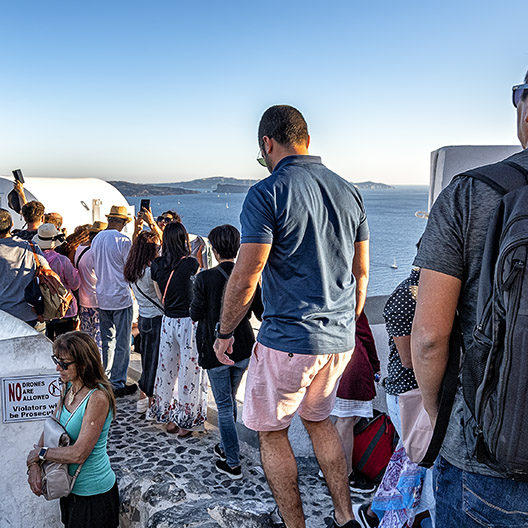


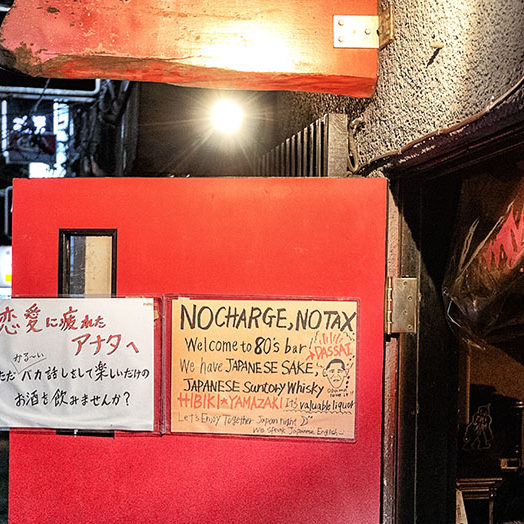
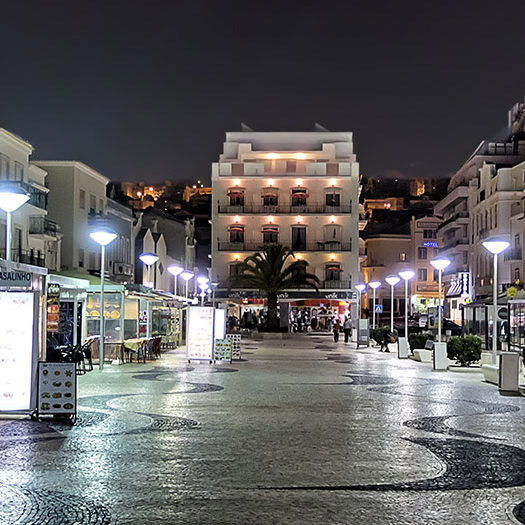
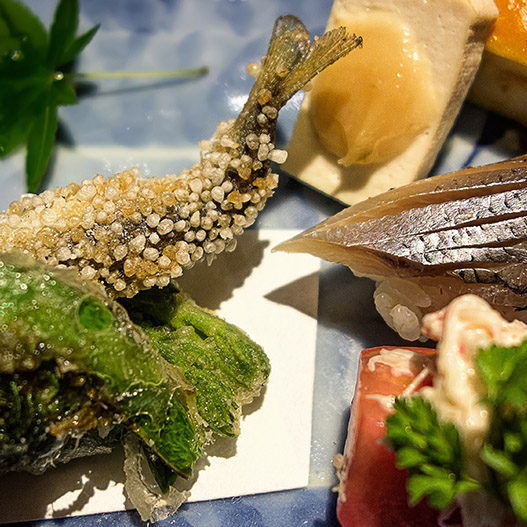

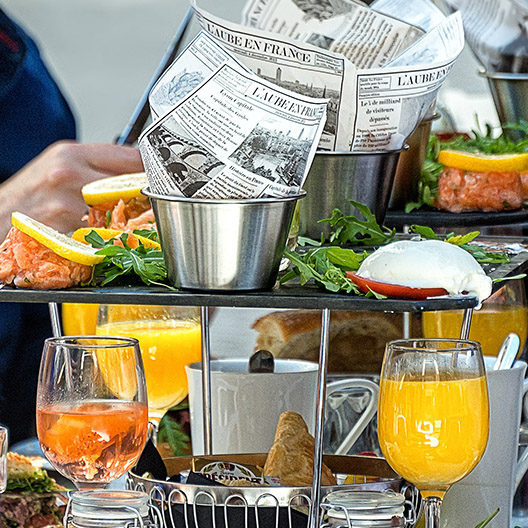
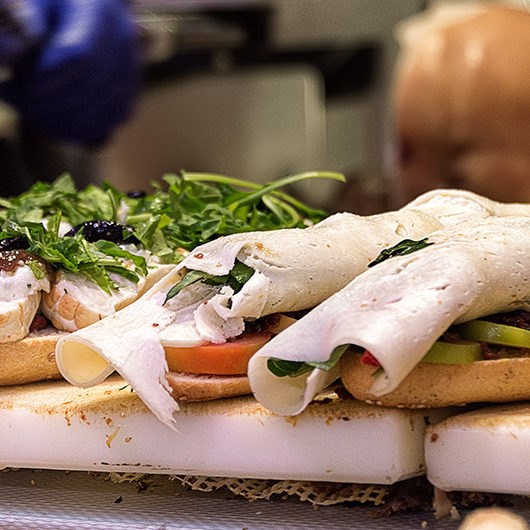
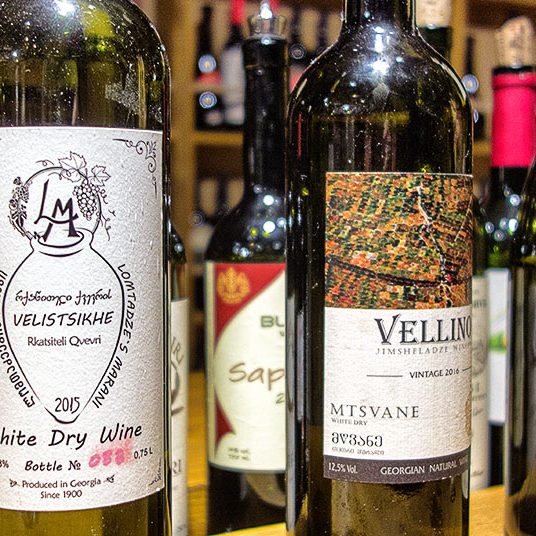


Now This is quite an interesting post to read. I have never heard about Fado music despite being music lover.. Phew.. But you have written great details.. thanks for sharing.
Thanks Krupa. If my writing is interesting, then that’s the best compliment I can yet.
I love Fado! Exploring the different music played around the world is such a fun experience 🙂
Strange this, I been to Lisbon, I been to the Alfama district but I dont remember seeing or hearing any of this. I am planning another trip to the Portugese capital soon so I hope to see this as I am into this sort of culture. Thanks for sharing a great post 🙂
You might have run into Fado in the Alfama, but didn’t realize what it was, or that it was a Thing. Yes, next trip get back to that area and check it.
I have never heard of Fado before but I do like enjoying food and music of places that I visit. I will remember this if i ever get to Portugal. Great post with lots of useful information!
I didn’t even know this was a thing. What a fun experience – and unique. I’ll have to check out the spotify playlist and hear it for myself until I head to Portugal.
I didn’t know about Fafo music, but just like you I believe that music and food are more often than not the best ways to experience and understand a Country. Also… I had no idea that the economy in Portugal is suffering this much, as I was sure tourism was helping a great deal. How very sad!
That’s exactly the kind of post on Fado I was looking to read, before we went for the experience two years back in Alfama 🙂 I would have to say in agreement with you in that the music did not shake me up (in the way that a Flamenco performance did), but was a wonderful way to connect with the soul of Lisbon. The narrative was engaging and appealing, as it always is!
Thanks, Punita. Always great to hear from you. Yeah, the Fado music is great, but not so much, for me, on its own, just in conjunction with the place.
Very, very interesting. I love Portugal for similar reasons that you mention in your intro, and having now not been for a number of years, I’m especially pleased to hear it hasn’t changed much (although I do think they probably deserve to move on a little more in the economic sense). I remember the wonderful food, how inexpensive it was and the oh so cheap green wine. We have a family friend who built a “resort” from the ground up using donkeys and locals as her only tools. It’s down near Faro, in the Algarve, in a tiny place called Moncaropacho. Time for us to get back to Portugal and to seek out Fado which we didn’t get to experience when we were there. Loved the imagery you created around the scene, especially having to be quiet! How amazing would it have been when that man came over to write ‘saudade” in your notebook? Some great experiences in here indeed.
Thank you so much Kerri, as usual, for some feedback thoughts about this. Yes, Portugal should be doing better, and I’m convinced it will, partly because people are discovering it. But I hope it stay inexpensive, green wine and all, and I hope it keeps its attitude. The pub where the guy wrote “saudade” in my notebook is still around, and the feeling is still there. It’s a brilliant country, with a brilliant feeling. When I go back, I want to write you about your friend in Moncaropacho.